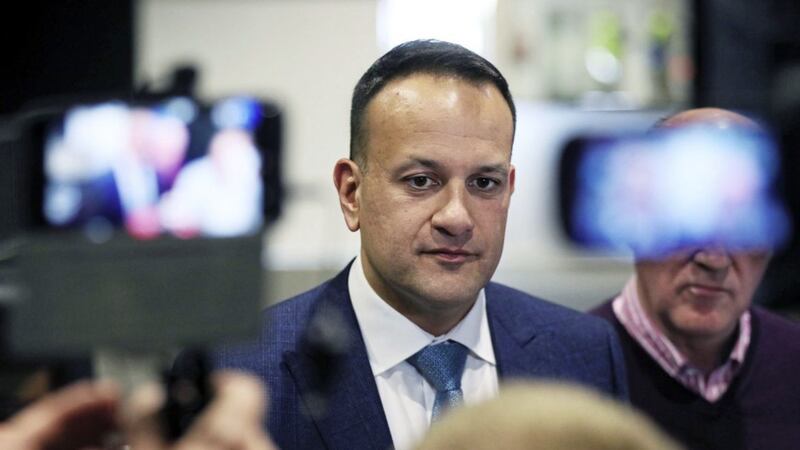A week ago, Taoiseach Leo Varadkar was able to describe coronavirus policy differences within Stormont and between north and south as simply a matter of “timing”.
This week, with both parts of Ireland taking equally assertive action, there is a sense of differences being resolved.
Yet for the next month at least, Northern Ireland and the Republic will be following strikingly different policies at the same time. The better this is explained, the less chance it has of causing further argument.
The Republic is following the South Korean model of social distancing accompanied by community testing, contact tracing and isolation of positive cases, which has brought the epidemic in South Korea to a halt.
Varadkar believes an Italian-type lockdown is unnecessary and possibly counter-productive, citing World Health Organisation advice that severe restrictions are unsustainable and could see the virus “come roaring back”.
There are signs this is happening in Hong Kong, which appeared to enjoy success with a strict early lockdown.
Testing is not about finding out where you are in the progression of the epidemic - that can be established from hospital statistics. It is a tool to tackle the epidemic, when combined with an extraordinary effort of tracing and isolation.
Northern Ireland is now following a policy of lockdown. In a nostalgic echo of Brexit terminology, we are currently in a soft lockdown, with many workplaces still operating and most people still allowed outdoors. This will be reviewed in three weeks.
The UK’s innovation, as a third way between Italy and South Korea, is to identify the entire at-risk population from health records and put them in a three-month hard lockdown. In Northern Ireland, this will involve 40,000 people.
If soft lockdown is seen as enforced social distancing, the essential difference between north and south is that the Republic is trying to isolate everyone who might have the virus, while we are trying to isolate everyone who might die from it.
Of course, that is not the end of the matter. Isolating the vulnerable is not a long-term solution: the UK is only doing so to buy time for a wider roll-out of testing, tracing and isolation.
Meanwhile, the Republic is discovering the South Korean model takes time to implement and voluntary social distancing has its limits. Varadkar conceded this week that “further restrictions” are under consideration.
It should become evident over the next month that Ireland and the UK are converging on an approach of both lockdown and testing. However, there will be ongoing differences in emphasis and outcomes, certainly on a day-to-day basis.
This creates opportunities for confusion, fear, mischief and agitation. Some ghouls are clearly watching the statistics to see who is ‘winning’.
There is also a real prospect of misaligned policies undermining each other.
The irony of last week’s disagreement is that closing schools had little cross-border relevance. It is a marginal policy in tackling the epidemic overall and only a few hundred pupils were crossing the border every day, all the same children travelling between the same homes and schools.
Differences in shop closures, on the other hand, could cause large numbers of people to cross the border and congregate in novel combinations.
The necessity of all-Ireland co-ordination on coronavirus has never been disputed at Stormont. First minister Arlene Foster, appearing on UTV this Monday alongside her Sinn Féin counterpart Michelle O’Neill, said the executive is in contact with the Republic’s chief medical officer multiple times a day.
It would be enormously helpful if these consultations could be made more public, ideally with joint statements or press conferences from the chief medical officers of both jurisdictions.
There can be no question of locking down the border, for political and practical reasons. But nor should it be controversial to acknowledge differences between jurisdictions - managing them is the point.
It has often been said in recent weeks that viruses do not recognise borders. In practice, social and economic factors determine how infection spreads and the division of the world into countries determines how societies and economies interact.
Foster described it better, no matter how gauche it sounds, when she told UTV the virus is “not unionist or nationalist”.
In any case, this could be eclipsed shortly by an urban/rural divide, as London and Dublin are both well ahead of adjacent regions in the epidemic. Testing will show if the same is true of Belfast.
The hardest policy frontiers on the island of Ireland could end up around its only two major cities.









